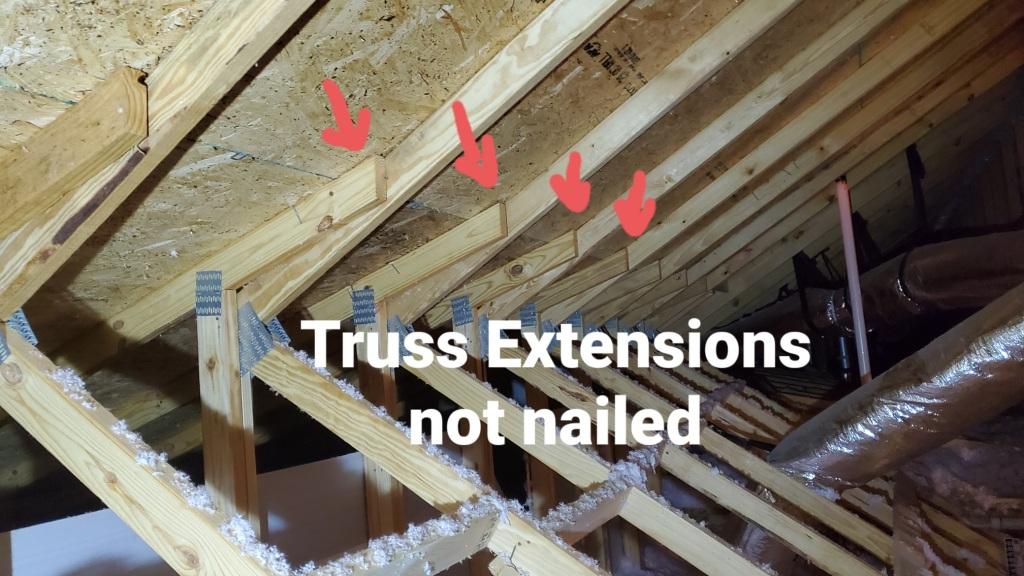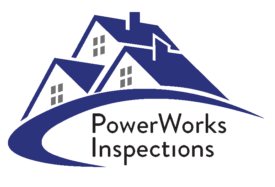- BY Richard
- POSTED IN Uncategorized
- WITH 0 COMMENTS
- PERMALINK
- STANDARD POST TYPE

It is a common belief that a newly constructed home will not have any flaws or hidden issues. New construction homes are presumed to be in their perfect form from foundation up through the roof system having been guided and controlled by the building contractor. However, with today’s multi home subdivisions or even custom home construction, it can be difficult for the best General Contractor to check up on all aspects of work being performed. Often subcontractors are under pressure to complete multiple jobs, and as a result, minor or even major tasks can be overlooked or not completed to their normal quality.
We advise all our clients to conduct a new construction inspection before finalizing the house buying process.
As experience, certified and train home inspectors, our goal at Powerworks Inspections is to find the items that were missed, done incorrectly, impaired or damaged.
Often issues are found on the roof or within the attic framing. The reason for this is, that most building inspectors are not required to walk a roof, climb at ladder or go through the attic framing as it is a safety hazard and also as a result, an insurance issue. Also, most builder representatives are not required to walk the roof or examine the attic for the same reason.
Many common items discovered on the roof during a new construction inspection are: damaged or missing shingles, flashing that is missing or has been installed incorrectly, missing underlayment at returns and overhangs, vent boots that are damaged and gutters that are pitched incorrectly. However, the most consistent issue found with attic framing inspections, is broken trusses and trusses that have been unprofessionally repaired.
None the less, there are other items to be discovered than those associated with the roof and attic systems. During our new construction inspections, we have found where flashing was not installed over windows or wooden trim where required, flashing missing at the junction of brick veneer and the hardi plank siding above it. Other items include incorrect breakers installed, leaking Watts valves at water heaters, kitchen vents that terminated in the attic instead of the exterior, broken floor tiles, new windows with damaged E-Coatings, and proper electrical protection missing at needed locations. This next comment has only happened once. At one 11-month warranty inspection, the own complained how cold it was in the winter and how hot it was in it was n the summer. The area she was referring to was the kitchen, dining room and living room. It turned out that the access to this area was a small scuttle hole in the garage ceiling. Well, it turns out the insulators had never gone up in this area. As a result, half of the home was not insulated on the attic floor. No wonder she was cold in the winter. In addition her heating and cooling bills were elevated as a result.
In general most people, due to experience and understanding, walk through their new construction home; and notice cosmetic items that the builder will normal fix in most circumstances. The average person has not been trained to inspection the systems of a home. This is why a qualified and thorough inspector is needed. Responsible and certified home inspectors are trained to review your electrical system, electrical service entrance, HVAC system, water heater, plumbing system, foundation, siding, windows, eaves, roofing, attic framing and the grading around your home. Often, just one portion of what a home inspector finds will save you enough money in the long run to pay for the inspection.
Often the builder and agent representing the builder may try to discourage you from having your new home inspected. The can be for a number of reasons, some of which I do not know. The builder may could have a couple of reasons. 1 He has confidence in his subcontractors and the ability of his site person to manage the building of multiple homes. However, the site manager often is not familiar with Code and leans on the subcontractors to do the correct thing. 2 As of the time this blog is being written, the builder is often behind schedule to complete the home at the closing date. This past year, the delay has largely been due to supply shortages. So having a home inspector come in near the completion time and point out items in need of correction only add to his delay time.
Some real estate agents representing the builder will also discourage a home inspection. There reason may be similar to the builders. The agent may truly believe there are no issues to be found and they would like the transaction to go quickly without have to deal with a home inspectors report and the extra communication that goes along with it.
As a result of my experience as a home inspector, I would never complete my sale on a new construction home without a home inspection.
So, to conclude, yes in the end a new construction inspection will cost you some money. However, if you were left to pay for the repairs of the items found, that cost is usually far beyond the cost of your inspection. Also there is a peace of mind knowing the home has been carefully evaluated and that the builder will resolve your concerns. From this short presentation, we hope you can understood the importance of a New Construction Inspection. Please contact us for your new construction inspections.
